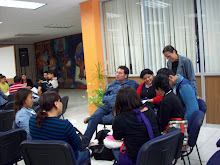
Today is Wednesday, Aug. 6, the 219th day of 2008 with 147 to follow.
The moon is waxing. The morning stars are Neptune and Uranus. The evening stars are Mercury, Jupiter, Venus, Mars and Saturn.
This Day in History, August 6
On August 6th, 1806, Francis II abdicated, ending the Holy Roman Empire.
Other Notable Events, August 6
In 1890, the first execution by electric chair was carried out. William Kemmler was put to death at Auburn Prison in New York for the ax murder of his girlfriend.
In 1926, Gertrude Ederle of New York became the first American to swim the English Channel.
In 1940, Italy invaded British Somaliland, starting the Battle of North Africa in World War II.
In 1945, an atomic bomb was dropped on the Japanese city of Hiroshima. Three days later, after Nagasaki also was bombed, Japan surrendered, ending World War II.
In 1978, Pope Paul VI died at the age of 80 after a heart attack. He had led the Roman Catholic Church for 15 years.
In 1986, William Schroeder died of a stroke in Louisville, Ky., after 620 days with the Jarvik-7 mechanical heart. He was the longest-living permanent artificial heart patient.
In 1990, the U.N. Security Council voted to impose worldwide economic and military embargo on Iraq as punishment for its invasion of Kuwait.
In 1993, Morihiro Hosokawa was elected prime minister of Japan.
In 1995, some 100,000 people attended a memorial service in Hiroshima, Japan, to mark the 50th anniversary of the U.S. atomic bombing that helped end World War II.
Also in 1995, police in Colombia captured Miguel Rodriguez Orejuela, the reputed co-leader of the Cali drug cartel.
In 1996, NASA Administrator Daniel Goldin announced the discovery of evidence of a primitive life form on Mars.
In 1997, the Dow Jones industrial average closed at an all-time high of 8,259.31.
In 2003, actor Arnold Schwarzenegger announced his candidacy for governor of California on NBC-TV's "The Tonight Show."
In 2005, Cindy Sheehan, mother of a soldier killed in Iraq, set up camp outside U.S. President George Bush's Texas ranch, bitterly criticizing the war and demanding to see him.
Also in 2005, a Newsweek poll gave U.S. President George Bush his lowest ratings on his handling of the war in Iraq. Sixty-one percent of those surveyed said they disapproved of the president's actions and 34 percent approved.
In 2006, at least 200 people watching floods in Mardan, Pakistan, plunged into the water when the 30-foot-high bridge they were standing on was swept away.
Also in 2006, a U.N. report said a huge shipload of smuggled bomb-making uranium uncovered by customs officials in Tanzania was headed for Iran.
In 2007, six coal miners were trapped 1,500 feet below ground after a shaft collapsed at the Crandall Canyon Mine in Utah. Despite several days of intense rescue efforts, mine officials reported no survivors.
Also in 2007, the U.S. Consumer Product Safety Commission was reported considering a formal ban on lead in children's jewelry. Federal officials said China was responsible for 95 percent of the nearly 18 million pieces of children's jewelry pulled off the market in the past two years.
Notable Birthdays for August 6
Those born on this date include:
- English poet Alfred Lord Tennyson in 1809
- Hollywood gossip columnist Louella Parsons in 1881
- Alexander Fleming, the discoverer of penicillin, also in 1881
- Movie cowboy star Hoot Gibson in 1892
- Comedian Lucille Ball in 1911
- Actor Robert Mitchum in 1917
- Former airline executive Freddie Laker in 1922
- Artist Andy Warhol in 1928
- Actress Catherine Hicks in 1951 (age 57)
- Film director M. Night Shyamalan in 1970 (age 38)
Copyright 2008 by United Press International





No comments:
Post a Comment